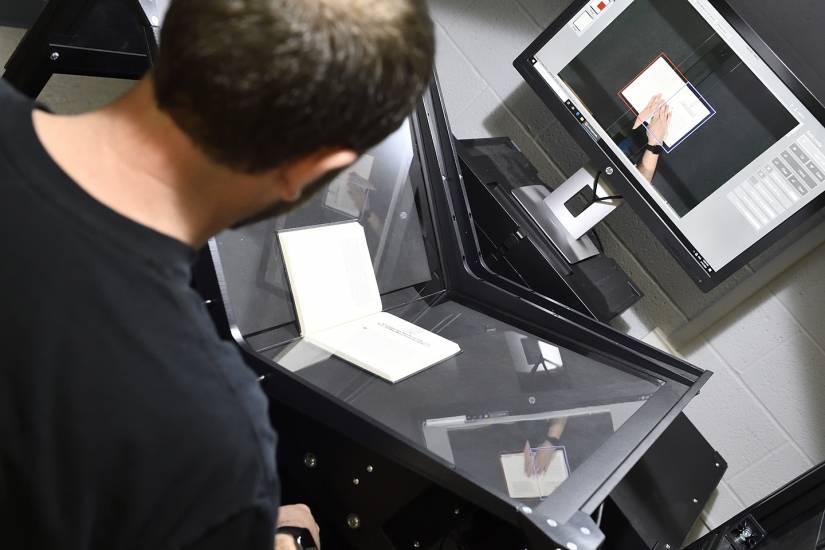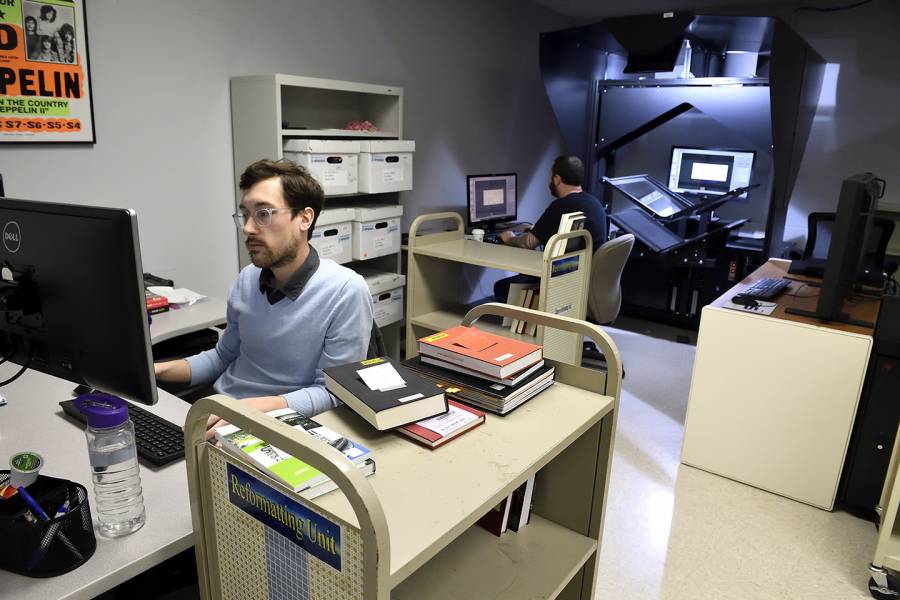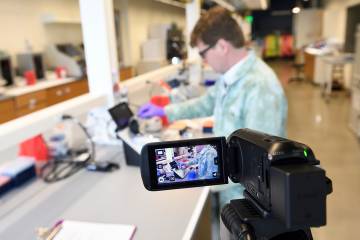As students and faculty spent spring break adjusting to the news they would be completing the spring 2020 semester via remote learning, staff at the Sheridan Libraries began digitizing books, articles, films, recordings—whatever supplemental material faculty need in order to teach. There's quite a lot to do: There are 1,428 undergraduate courses being taught in the Whiting School of Engineering and the Krieger School of Arts and Sciences this spring, which includes lectures and seminar courses, independent studies, internships, and research courses.
"Demand for our services has picked up," says Liz Mengel, the associate director of Collections & Academic Services at the Sheridan Libraries, which includes Reserves services and digitization efforts. "We're looking at how to move from print to buying more electronic book options for people, even for disciplines that are more traditionally print. We've opened up another streaming video service to help support people who use video in their classrooms. We're just doing everything we can to help faculty move their classes into remote teaching."
Not every course requires the same amount of supplemental digital material, and the library staff is working to keep up with the needs as classes resume. For books, the process involves scanning page by page, editing the scans and turning them into a linkable PDF to share with class instructors. For movies or clips for the Program in Film and Media Studies or audio recordings to be used in language classes, a different team is converting assets into the appropriate file format to be stored where instructors can access them and integrate them into their coursework.

Image caption: Digitization specialist Kyle Bacon scans a book
Image credit: Will Kirk / Johns Hopkins University
"Our role comes in when faculty have a resource on some kind of media that's not easily shared with the class," says Brian Cole, a senior information technician at the Sheridan Libraries. He doesn't usually work with the digitization efforts, but he knows how audio and video media integrate with Hopkins' course management and video management systems, and is contributing to this process. "This is often audio or video that might originate as digital media, but not in a format that can easily be shared with the class. Language courses use a lot of media when they're teaching so we're consulting with the faculty member about what they're trying to accomplish, telling them which of the different tools we have, and then working with the source media and training faculty on how they can do it themselves."
When Johns Hopkins announced that courses would transition to remote instruction, Mengel said the entire library staff pulled together to support the reserves and digitization efforts. Staff from across the library went into the stacks to pull items from the shelves for the reserves and digitization teams. Mike Reese, director of the Center for Education Resources, adds that his team has been helping faculty prepare for teaching remotely. "It's been inspiring to see how many people came together to support instructors," he says. Reserves Supervisor "Abby Collier and the reserves team have done so much. We all support the faculty, but faculty have also reached out to us and offered to consult with their colleagues. They developed help guides that we're posting on our website. We even had a group of faculty drop off a goody box with snacks and drinks, knowing that we'd be working late hours over the last week."
Though the library is closed, this reserves and digitization effort is a labor-intensive process that will continue through the remainder of the spring 2020 semester by five highly dedicated staff members. "Our liaison librarians will continue to support online reference and chat," Mengel says. "If we need to order e-books, we can do that from off site. We can't really do the work that reserves and digitization are doing offsite, so as long as it is safe for essential staff to be here, we will be digitizing. Everything else we'll try to manage offsite."









